A
Industrial & Labor Leaders
________________________________________
Meet the people who played key roles in shaping the area's labor and industrial past. Through stories, photographs, and archival materials, these galleries honor the workers, organizers, innovators, and leaders whose efforts left a lasting impact on local communities and the broader labor movement.
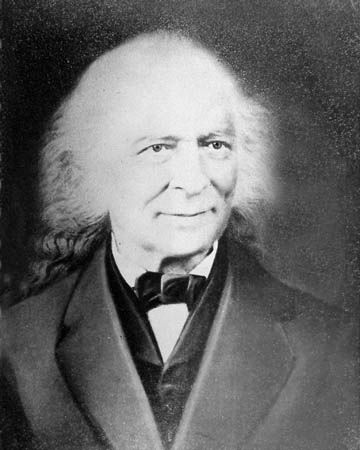
George Bunsen
(1794-1872)
German Born Educator
Member Of Illinois' First State Board of Education 1856
Bunsen, a German born educator and inventor, devoted his life to the idea that an educated public was essential for a successful democracy.
He was a German radical, a member of the German revolutionary group "Burchanschaft"
who fled Germany in 1834. He came to Belleville, IL. In 1848, he was elected as a delegate to the Illinois Constitutional Convention. He was a member of Illinois' first State Board of Education in 1856. He promoted and was instrumental in establishing the first "Normal School" in the state -- Illinois State University. He established the annual St. Clair County Institute for Teachers and served as a member of the Belleville School Board from 1859-1872. Belleville's Bunsen School was named in his honor and now serves as the Nichols Community Center.
He was a German radical, a member of the German revolutionary group "Burchanschaft"
who fled Germany in 1834. He came to Belleville, IL. In 1848, he was elected as a delegate to the Illinois Constitutional Convention. He was a member of Illinois' first State Board of Education in 1856. He promoted and was instrumental in establishing the first "Normal School" in the state -- Illinois State University. He established the annual St. Clair County Institute for Teachers and served as a member of the Belleville School Board from 1859-1872. Belleville's Bunsen School was named in his honor and now serves as the Nichols Community Center.
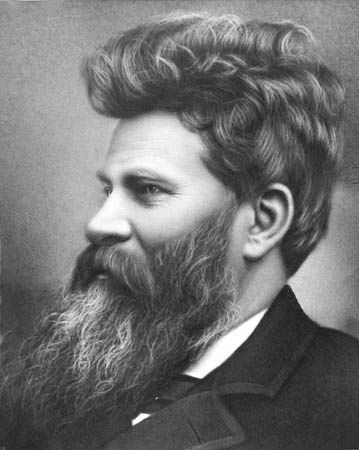
Henry Raab
(1837-1901)
German Born Educator
State Superintendent of Public Instruction 1882-1886
Henry Raab was born in Westzler, Germany in 1837, and moved to Belleville in 1854. "No instruction is of any avail when it leaves the child indifferent." Raab, a German born educator, served as the first full-time superintendent of the Belleville School District. He was instrumental in building the Lincoln School of West Belleville and the existing Henry Raab School is named in his honor. From 1882 to 1886, he served as the State Superintendent of Public Instruction and instituted a program of mandatory teachers institutes by county.
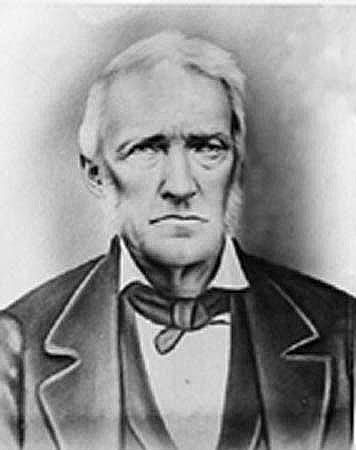
John Reynolds
(1788-1865)
4th Governor of State of Illinois
Reynolds, "The Old Ranger", served as the fourth Governor of the State of Illinois 1830-1834. He was a compulsive campaigner, populist and a defender of slavery in Illinois. He operated a personal printshop at his residence in Belleville. From 1818 to 1828 he served as an Associate Judge of the Illinois Supreme Court. He also served four terms at a State Legislator. From 1833 to 1848, he served as a U.S. Congressman. He was a veteran of the War of 1812. As an author he published his "Pioneer History of Illinois" in 1852 and "My Own Times" in 1855. He was born in Pennsylvania and emigrated to Illinois in 1800.
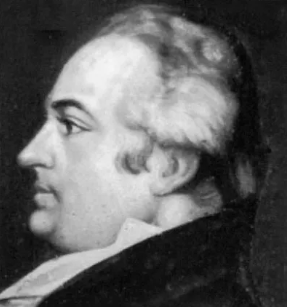
Ninian Edwards
(1775-1833)
Territorial Gov.
1809 to 1818
3rd Gov. of State of Illinois
Edwards, land speculator, statesman and Governor, became an authority on frontier government. From 1809 to 1818, he served as the only Territorial Governor of Illinois. As Territorial Governor from 1809 to 1818, he was in charge of the salines of Southern Illinois - a source of revenue for the Federal Government. In 1819, he was elected to the U.S. Senate, and in 1826, he became the third Governor of the State of Illinois. Edwards is well known locally as the man who promoted Belleville as a town site after he had purchased all available town lots in 1828. He advertised the desirability of Belleville in America and abroad. He died at Belleville in 1833 while ministering to cholera victims.

William H. Bissell
(1811-1860)
11th Gov. of State of Illinois
1st Republican Governor
1st Republican Governor
Bissell was the first Republican and the first Catholic to serve as Governor of the State of Illlinois. He was elected the eleventh governor in 1857. The anti-slavery candidate was also a well-known extemporaneous speaker, medical doctor, attorney and veteran. He was elected to the Illinois Legislature in 1840, and from 1848 to 1854, he served as a U.S. Congressman. He was born in New York and emigrated to Illinois upon graduation from Law School in Lexington, KY. Bissell also served in the Mexican War.
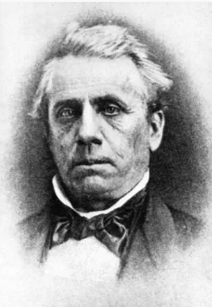
Gustave Koerner
(1809-1896)
Lt. Governor of State of Illinois
1853-1857
1853-1857
German born, Koerner, came to Belleville in 1833
-- one of a number of students who fled Germany because of his liberal, political and revolutionary activities. He is well known as an author, attorney, judge, statesman and foreign minister. He was a member of the Illinois legislature at various times in his lengthy political career -- 1842, 1844, 1870. In 1845, he was elected to the Illinois Supreme Court. He was the first German immigrant elected to state office. He served as Lt. Governor from 1853-1857. President Lincoln appointed him America's Minister to Spain in 1862. In 1872 he served as an Illinois Railroad Commissioner.
Koerner, a staunch supporter of Abraham Lincoln, and vocal in his disrespect to the institution of slavery, was instrumental in organizing the Republican Party in Illinois and was an acknowledged leader of the Republican Party in Southern Illinois. Koerner was president of the committee which nominated Lincoln for U.S. Senator in 1858. In recognition of Koerner's political accomplishments at the state level, his name is carved in the Centennial Building at Springfield. He sadly served as Lincoln's pallbearer.
Koerner published "The German Element in the United States" in 1880 and "From Spain" in 1867. Koerner's Memoirs, a two-volume set, is a respected historical resource for those interested in the German influence in Illinois.
-- one of a number of students who fled Germany because of his liberal, political and revolutionary activities. He is well known as an author, attorney, judge, statesman and foreign minister. He was a member of the Illinois legislature at various times in his lengthy political career -- 1842, 1844, 1870. In 1845, he was elected to the Illinois Supreme Court. He was the first German immigrant elected to state office. He served as Lt. Governor from 1853-1857. President Lincoln appointed him America's Minister to Spain in 1862. In 1872 he served as an Illinois Railroad Commissioner.
Koerner, a staunch supporter of Abraham Lincoln, and vocal in his disrespect to the institution of slavery, was instrumental in organizing the Republican Party in Illinois and was an acknowledged leader of the Republican Party in Southern Illinois. Koerner was president of the committee which nominated Lincoln for U.S. Senator in 1858. In recognition of Koerner's political accomplishments at the state level, his name is carved in the Centennial Building at Springfield. He sadly served as Lincoln's pallbearer.
Koerner published "The German Element in the United States" in 1880 and "From Spain" in 1867. Koerner's Memoirs, a two-volume set, is a respected historical resource for those interested in the German influence in Illinois.
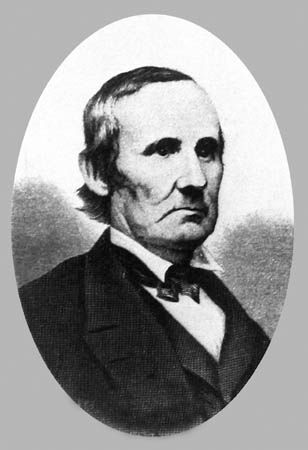
Colonel John Thomas
(1800-1894)
President of Belleville Pump & Skein Co.,
Builder of Thomas House
The Thomas family emigrated from Wales to Virginia and arrived in Illinois by 1807. The family constructed a portion of the old stage coach road from Vincennes, IL to St. Louis, MO (known as the Great Western Mail Route and later the National Road). Thomas participated in formulating the first State of Illinois Constitution and in the formation of the Republican Party.
Three generations of the Thomas family were capitalists who were influential in the manufacturing and business life of Belleville. Colonel John Thomas built Main Street's Thomas House in 1854 and became President of the Pump & Skein Works in 1877. In 1880, he published the Advocate Newspaper, and he became the owner of the Short Line Railroad in 1884. Thomas family members served as Circuit Judges and members of the State Legislature.
Three generations of the Thomas family were capitalists who were influential in the manufacturing and business life of Belleville. Colonel John Thomas built Main Street's Thomas House in 1854 and became President of the Pump & Skein Works in 1877. In 1880, he published the Advocate Newspaper, and he became the owner of the Short Line Railroad in 1884. Thomas family members served as Circuit Judges and members of the State Legislature.
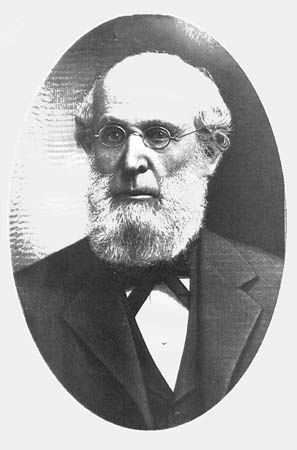
Edward Abend
(1822-1904)
4 Term Belleville Mayor, Attorney, & Capitalist Agent
His family moved from Germany to Belleville, IL, in 1833. Abend became an Agent for German Capitalists in 1852. He served as President of Belleville Savings Bank and was a four time Mayor of the City of Belleville. Because of his opposition to slavery, he was expelled from Democratic Party.
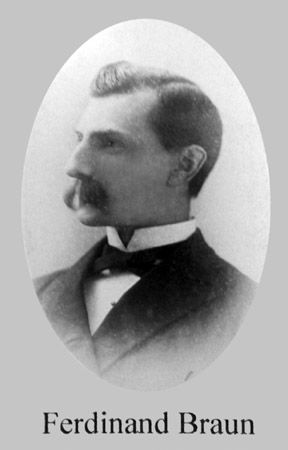
Ferdinand Braun
(1827-?)
Brick Manufacturer, Coal Mine Operator, Distillery Owner
Ferdinand Braun, a malster from Germany, owned coal mine lands, a dairy and a brickyard on the north side of Belleville where his father, Lorenzo, and George Bressler built a distillery in about 1840. In 1863, Ferdinand was the sole owner. By 1874, his interests turned to transportation, and he incorporated the Belleville City Railway Company. Belleville is credited with the first electric rail line in the State of Illinois. Braun and his wife, Wilhelmina, returned to Germany in 1891 and never returned to Illinois or America. His father, Lorenzo, and brother, Charles, invested heavily in Belleville but resided in St. Louis, MO.
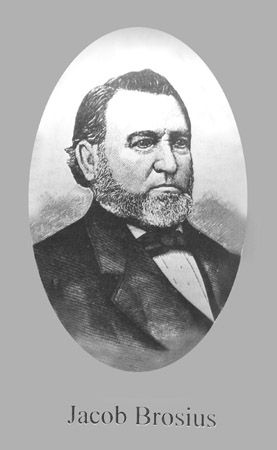
Jacob Brosius
(1824-1882)
Machine Shop Owner & Inventor
Jacob Brosius was a mechanic and an inventor who came directly to Belleville in 1849. His products reflect the hand of man. He held at least 7 patents for agricultural equipment improvements and 3 for radiators and steam conducting pipes. His foundry and machine shop was prosperous, and his castor, linseed and pecan oil business was even more so. In 1876, he built a very pretentious, palatial style home on a hill overlooking east Belleville. He called it "Kronthal". In 1879, he built the works for heating the City. His "Electric Clock" located in his residential tower was connected with other public clocks in the City. He died in 1882, age 59.
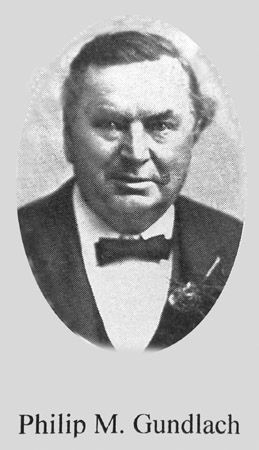
Philip Gundlach
(1831-1908)
Industrialist, Inventor
The Gundlachs manufactured tools of their own invention. Immediately after the Civil War, Philip M. Gundlach built a new iron foundry powered with Gundlach coal. His son, Joseph, operated the railroad to transport the coal. The P.M. Gundlach Agricultural Mfg. Co. was staffed by his sons: Philip A., Gen. Mgr.; John P., Engr.; Aloys, foreman. They manufactured grain drills, cleaners, hay rakes, wheel hubs and more modern products such as "Packing for Piston Rods and the like". The family emigrated from Frankfurt, Germany in 1842. The 20th Century Gundlachs were equally inventive. Some were self-educated machinists and tool designers. They respected foundry practices. Gundlach companies include: Gundlach Machinery, founded 1908; T.J. Gundlach Machine Co., founded 1919; Beno J. Gundlach Machine Co., founded 1927; Gundlach Roofing ca. 1900; Specialty Tool ca. 1920.
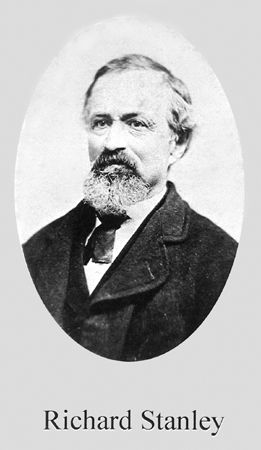
Richard Stanley
(1835-1910)
Nail Mill Owner
The Stanley family traveled from New York to PA, SC, NC and finally to Illinois. John and Elizabeth purchased land at Ogles Station in the west end of Belleville. By 1824, Brother Stanley was hosting Methodist church sessions, and Stanley women had married into the Ogle and Phillips pioneer families. Richard Stanley served in the Civil War, learned the nailing trade and returned to Ogle Station to open a nail mill. As many farmers did, he mined coal for fuel. In 1874, Zachariah Stanley sold the farm he had lived on for more than 50 years to the Hazard/Wilson Mining Co. Richard moved his nail mill enterprise to a rapidly developing industrial area near Grand, Douglas and East B Streets. Stanley made wire nails, cut nails, tacks and all sizes of staples.
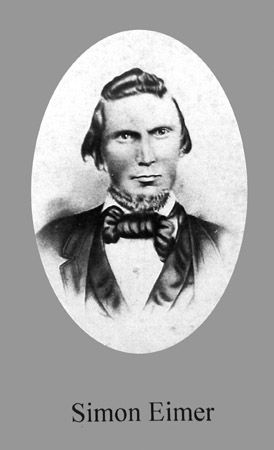
Simon Eimer
(1812-1866)
Brewing Industry Pioneer
Simon Eimer became one of the wealthiest industrialists of his day -- a biographer states: "Eimer was prominent in every activity good for a city". He arrived in 1844. In 1848, he built a bath house, followed by an entertainment park south of the Public Square and a hall on West Main Street. He served as a member of the Board of Education. As an alderman, he was appointed to a committee to plan for a new Market Square, a new Engine House and a new City Hall. He was a pioneer in the brewing industry of the Mississippi Valley and opened the Washington Brewery in 1846. The rebuilt brewery in 1859 was the largest brewery west of the Allegheny Mountains. The cellars were two stories deep in the ground. His nephew, John, also emigrated from Germany to help him manage his affairs which included investments in New Orleans and California.
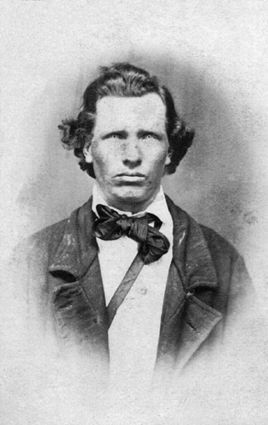
Theopolis Harrison
(1831-1908)
President of Harrison Machine Works
In 1803, Reverend Thomas Harrison, grandfather of Theopolis, arrived in Illinois, an unknown wilderness. Ten years later he built a cotton gin, the beginning of a very successful milling business. Harrison, who migrated from N. Carolina, was of Scotch-Irish descent. He had 10 children. By 1831 the Harrisons built the first steam operated mill in the State. The mill, at the west end of Main St. on Richland Creek, burned and was rebuilt. By 1844 Harrison Mills reported annual sales of a million dollars.
Another Harrison enterprise in Belleville was Harrison Machine Works. Theopolis Harrison, a grandson of Rev. Thomas, invested in Middlecoff's Agricultural Equipment Foundry in 1855. For 95 years HMW manufactured threshing machines, steam engines, straw carriers and pea pickers. It should be noted that in 1838 Thomas Harrison served as "President" of the Town of Belleville. In addition to his milling enterprise, Harrison built the "Mansion House" in 1840. It was the site of many historical happenings in Belleville including the infamous visit of Charles Dickens. The Lincoln Theatre replaced the Mansion House in 1920.
Another Harrison enterprise in Belleville was Harrison Machine Works. Theopolis Harrison, a grandson of Rev. Thomas, invested in Middlecoff's Agricultural Equipment Foundry in 1855. For 95 years HMW manufactured threshing machines, steam engines, straw carriers and pea pickers. It should be noted that in 1838 Thomas Harrison served as "President" of the Town of Belleville. In addition to his milling enterprise, Harrison built the "Mansion House" in 1840. It was the site of many historical happenings in Belleville including the infamous visit of Charles Dickens. The Lincoln Theatre replaced the Mansion House in 1920.
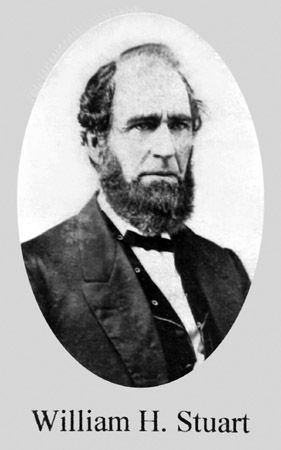
William H. Stuart
(1813-?)
Marble Dealer & Stone Cutter
William H. Stuart, a marble dealer and stone cutter, sold drugs as a sideline. He emigrated from Pennsylvania in 1816. His brother, Edward R. Stuart, was a partner in the publishing of the News-Democrat in 1859. They were significant land owners in south Belleville, and in 1864, Washington Public School was built on 14 of their lots. In 1819, their father, Alphonzo, was killed in the infamous Stuart-Bennett duel -- the only pistol duel fought in the history of the State of Illinois. It has not been determined who raised the two orphans
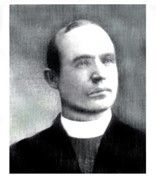
Father Frederic Beuckman
1869 - 1934
Past St. Mary Parish, Belleville
1910 - 1934
Author of works on the history of
St. Clair County and the Belleville Diocese 1918
An inventor of a gas heater and a new type of gas stove
Declaired a hero in the Shawneetown floods of 1898
1910 - 1934
Author of works on the history of
St. Clair County and the Belleville Diocese 1918
An inventor of a gas heater and a new type of gas stove
Declaired a hero in the Shawneetown floods of 1898
"My transfer to Belleville in August 1910 to a large Parish in Belleville presented immediately a serious problem. Belleville at the time was one of the nation's most flaring hotbeds of socialistic agitation, especially the west city section. Very few catholic men were then church attendants. They were not only socialists in search of economic redress from economic wrongs, but they had come to believe that the church was standing in the way of such redress. They were coal miners and the industrial workers. Socialistic parades, headed by bands of music very often started the lines of march within a block of my parish church."
Life work centered around the trials of the workingman. Following are quotes from the correspondence and writings of Father Beuckman.
On July 8, 1917, Fr. Beuckman condemned "the horrible, savage, brutal massacre of Negroes and burning of their houses in East St. Louis" the previous Monday. Most people of St. Mary's who did travel to St. Lous knew only too well of what Father Beuckman spoke.
"About the year 1926 quite a number of my parishioners, stove foundry sandblasters, were dying the slow and agonizing death of scilicosis [silicosis] strangulation. Daily I saw these victims of industrial wrongs and neglect die an undieing death, to which even strangulation of an unsuccessful hanging of the gallows is but momentary to the many months of strangulation of an incurable scilicosis victim...What was my position - I could see no other to assume than to crystalize public opinion to the fact that any enameled product, which went into the market with murder label of a preventable industrial fatal disease of scilicosis stamped upon it, cried for an accounting on that indictment. What happened?"
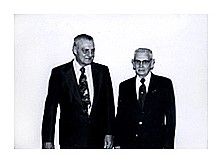
George R. Badgley
1898 - 1977
Pattern Maker, Orbon Stove
Member Local #4 Stove Mounters
1940 Elected VP Int'l Stove Mounters Union
1939 Elected Secretary of Stove Industry Labor Council
Secretary Central Trades & Labor Council
Member Local #4 Stove Mounters
1940 Elected VP Int'l Stove Mounters Union
1939 Elected Secretary of Stove Industry Labor Council
Secretary Central Trades & Labor Council
Mayor Charles E. Nichols (L) & George R. Badgley, the first recipient of the annual Labor Man of the Year Award, 1967
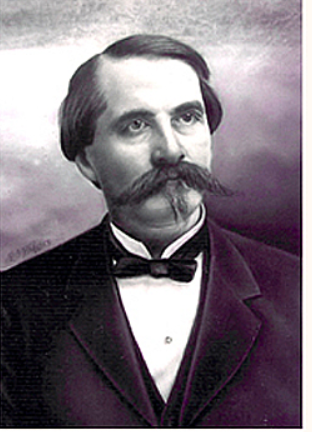
George C. Bunsen
(1822-1908)
Secretary of Benevolent Society
Son of famous German-born educator and inventor, George Bunsen. George C. was the Secretary of the largest Benevolent Society in Belleville -- The St. Clair County Benevolent Co with a membership of 2,000. He also operated a gunsmith shop at the West Belleville Toll Gate...1869. For a short time in 1878, he edited the "Reform" newspaper dedicated to the workingman.
His quote follows: "When a man is steady and sober and finds himself in debt for a common living, something must be wrong."
Bunsen immigrated to America with his parents in 1834. He grew up in an atmosphere of concern for the hardships and economic straits of the workingman in the last half of the 19th Century.
His quote follows: "When a man is steady and sober and finds himself in debt for a common living, something must be wrong."
Bunsen immigrated to America with his parents in 1834. He grew up in an atmosphere of concern for the hardships and economic straits of the workingman in the last half of the 19th Century.

Donny Schmeder
(1959-1990)
Labor Historian, Speaker, & Labor Activist
"I never fight for a cause to try to change my enemies -- I fight to keep my enemies from changing me."
Labor historian, speaker and labor activist. Donny came from a Union heritage spanning four generations.
Member IBEW Local 390: Health & Welfare Trustee. Self-taught student of Labor Law. Organized grade school level speakers bureau on labor history.
Devoted to promoting the men and women who built our nation and who maintain its mines, plants and services
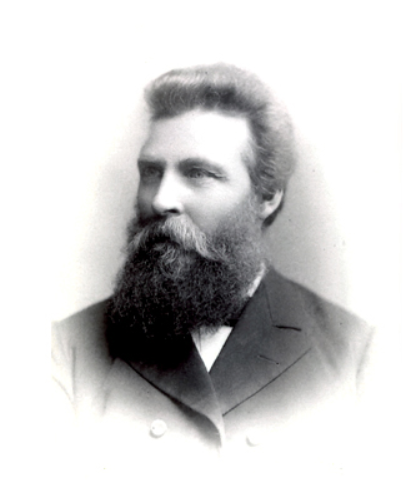
Hans Schwarz
(1851-1934)
Newspaper Editor & Union Leader
Schwarz was a newspaper editor trained in Germany. He immigrated to America in 1883 and to Belleville in 1884. A year later, he established the "Arbeiter Zeitung" a German language newspaper which a year later became a daily. He published the paper until 1915. His ideas were of great interest to recent German immigrants and he was quite outspoken on labor issues -- to the point of being beaten and vilified.
In 1892 he was elected President of Typographical Union #18 and in 1907 he was elected Secretary of the Illinois Association of German-American Pres.
In 1892 he was elected President of Typographical Union #18 and in 1907 he was elected Secretary of the Illinois Association of German-American Pres.
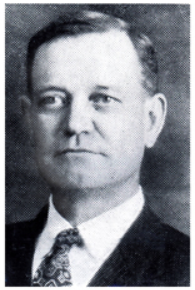
Aloys Towers
(1878-1937)
AFL Organizer & VP Illinois State Federation of Labor
Member Moulders Local #182.
Officer from 1878 - 1937.
1913 elected VP Illinois State Federation of Labor - an organization he served for 27 years.
1912-1918 Secretary, Belleville Trades and Labor Assembly.
Republican candidate for Illinois State Representative 1930
Member Moulders Local #182.
Officer from 1878 - 1937.
1913 elected VP Illinois State Federation of Labor - an organization he served for 27 years.
1912-1918 Secretary, Belleville Trades and Labor Assembly.
Republican candidate for Illinois State Representative 1930
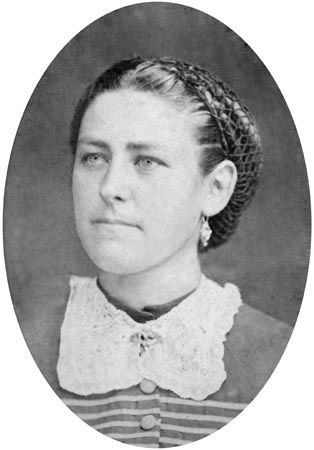
Caroline Fleming
(b. 1832)
The only female Belleville resident to receive a U.S. Patent in the 19th Century. In 1868 she was awarded a patent on her improvement of an agitating clothes washing machine.
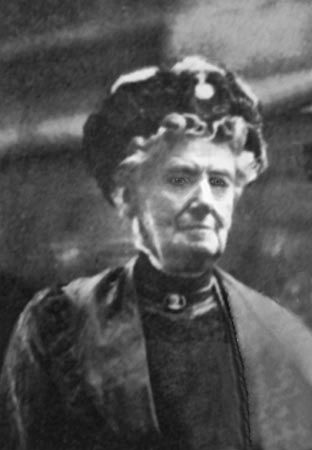
Carrie Bahrenberg
(1861-1929)
Nationally Recognized Suffragette and Social Activist
Received national recognition for her social activism. Her activities in the Women's Relief Corp and the women's suffrage movement made her a close friend of Jane Addams, the famous Chicago suffragette. Bahrenberg was elected a Univ. of Illinois trustee in 1900. She served 12 years. In 1915, she was elected national president of the WRC and in 1919 Chairman of the Civic League which replace the Equal Suffrage Assoc. of Illinois.
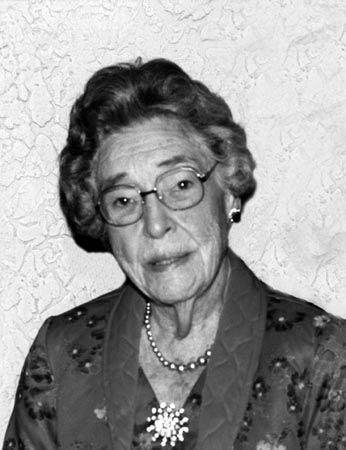
Ethlyn Bott
(1895-1984)
Awarded the American Mother of the Year in 1953
In 1953, Ethlyn Bott was named American Mother of the Year. Bott was the first stepmother selected by the American Mothers Committee of the Golden Rule Foundation to receive the award. In 1966 she recieved the "Woman of Achievement" award for civic participation by the St. Louis Globe Democrat. Bott also served as National President of Sigma Iota Chi for a record 46 years and was active in the DAR, serving as regent. Ethlyn was a teacher and authored a book in 1967 entitled "In the Web of the Pink Spider".
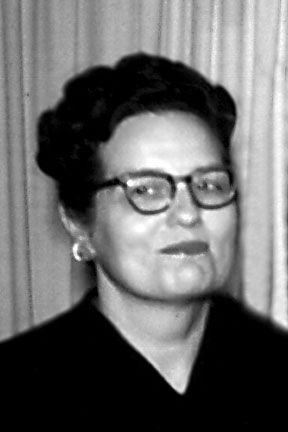
Florence Pruessing
(1904-1990)
Civic Supporter Organized Belleville Playground & Recreation Referendum 1945; PTA Life Member Award; Member, Illinois Congress of PTA
"When I was a grade school pupil I liked to think of some type of recreation for all the children in the community." Pruessing's childhood dream became a reality in 1945 with the implementation of what we know as Belleville Parks & Rec. She served as president of the board from 1945-1950. Her efforts were recognized years later by Mayor Charles E. Nichols.
Pruessing was also recognized by many organizations which indicate her deep interest in the quality of life in her community of Belleville. She served 9 years as a member of the District 118 School Board and PTA Council. As a member of the WWI American Legion Post Auxiliary she organized the Unit 58 Past President Parlay. The WWII Production Board, the American Red Cross and the USO organizations recognized her. The Zonta Club named her "Woman of the Year". The Memorial Hospital Volunteers honored her with an Emeritus Award. The Fraternal Order of Eagles and AARP officially recognized her efforts to further the aims of their organizations. As a retail clerk, she held a membership in Retail Clerks Local 219.
Pruessing was also recognized by many organizations which indicate her deep interest in the quality of life in her community of Belleville. She served 9 years as a member of the District 118 School Board and PTA Council. As a member of the WWI American Legion Post Auxiliary she organized the Unit 58 Past President Parlay. The WWII Production Board, the American Red Cross and the USO organizations recognized her. The Zonta Club named her "Woman of the Year". The Memorial Hospital Volunteers honored her with an Emeritus Award. The Fraternal Order of Eagles and AARP officially recognized her efforts to further the aims of their organizations. As a retail clerk, she held a membership in Retail Clerks Local 219.
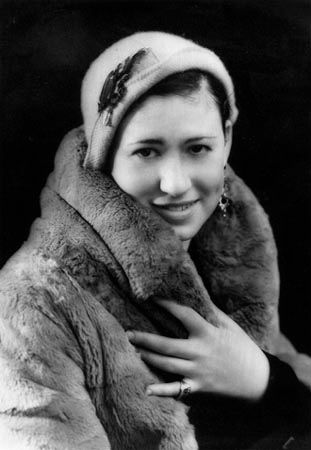
Marguerite Meyer
(1902-1987)
Business woman, international traveler, suffragette.
Named GMC 1940 Parts Manager of the Year
While her brothers were serving in WWI, Ms. Meyer hustled an auto agency for Belleville. Through her initiative, Meyer Bros sold Scripps, Booths and Hupmobiles, and in 1919, a Pontiac/Cadillac dealership was secured. She traveled internationally; but, was most interested in traveling to St. Louis, Chicago and New York in connection with women's suffrage.
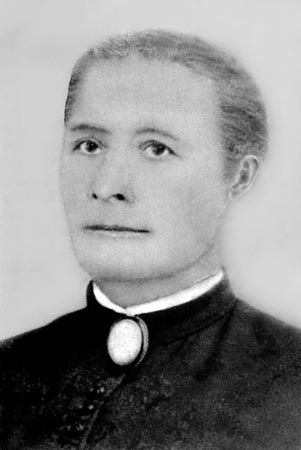
Maria Catherine Neu
(1830-1918)
Founded the Frauenverein of St. Paul's Evangelical & Reformed Church in 1861. She served as president for 25 years. The Frauenverein was a large women's organization which raised operating funds for the church.
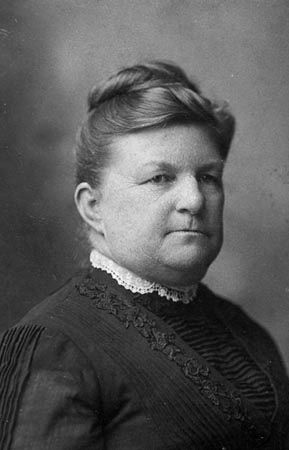
Mary Noser Mueller
(1852-1931)
Vice President of Orbon Stove Co. 1910-1918
Occasionally, a woman seized the opportunity to run a family-owned business upon the death of her spouse. Mary Mueller became Vice President of Orbon Stove Co. when her husband, Solomon, died. She served from 1910 to 1918. She proved to be a formidable woman, traveling to Colorado and Kansas to follow-up on real estate interests and journeying to Texas to secure her husband's business interests. On occasion, she took her young grandchildren as companions!
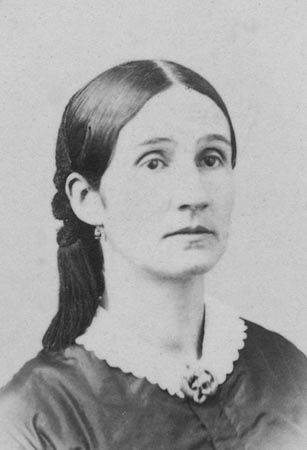
Molly Bunsen
President of the Ladies Union of Belleville in 1851 and a member of the Committee on Teachers of the Belleville School Association in 1850. Molly shared the Bunsen family interest in education and reform.
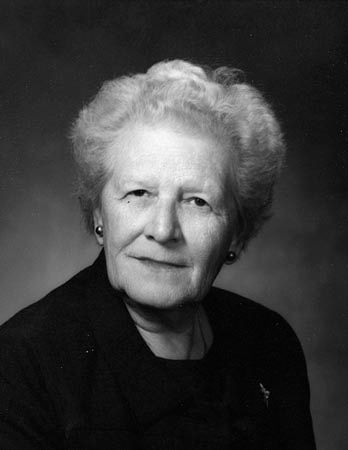
Ruth A. Sterling
(1905-1994)
President of Belleville Casket Manufacturing Co. 1953-1972
A St. Louis Washington Univ. graduate and president of Belleville Casket Manufacturing Co. Sterling served as president from 1953 until her retirement in 1972. She was a founding member of the Belleville League of Women Voters, served on the Belleville Grade School Board of Education and was the first woman to be elected to the National Board of Casket Manufacturers.
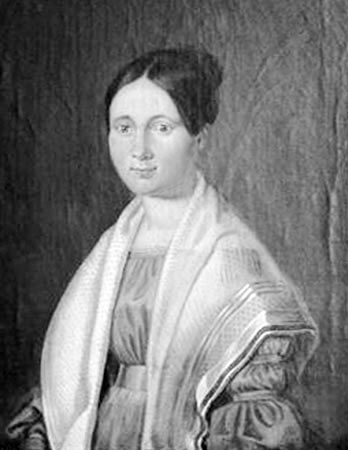
Sophia Engelmann Koerner
(b. 1815)
First President Of Belleville Kindergarten Association
Sophia Koerner and Henry Raab worked together to form the Belleville Kindergarten Assoc. in 1874. The association had 150 members and Sophia was their first president. 70 shares of stock at $30 each was sold to start the school of 201 pupils.
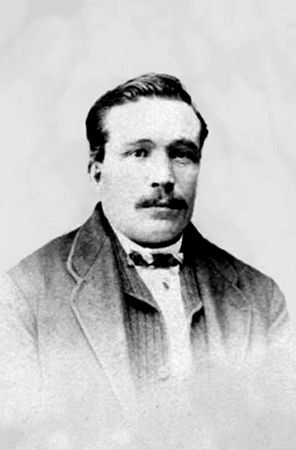
George Flach
(1856-1940)
Workingman/Foundry Owner
George Flach, molder, led Belleville's First Labor Day Parade in 1895. Apprenticed as a molder at age 15, he learned everything he needed to know at Rogers Foundry & Stove Co. and its successor Excelsior Foundry, both of Belleville. In 1898, after 27 years as a molder, he opened Richland Foundry at Centreville Ave and the IC Tracks. As a foundry owner, he retained his membership in Molders Local 182 and in 1901 he was elected his union's financial secretary. A 56 year membership did not immune Flach from the labor problems of the times. At Richland Foundry, in 1908, 14 employees were held under $1,000 bond for rioting. The incident involved a double shooting. The company was exonerated but two years later, Flach returned to his workingman job as a molder. He leased his plant to Karr Range Co. of Belleville. (See Wilderman's History of St. Clair County, pub 1907, p 1013.)
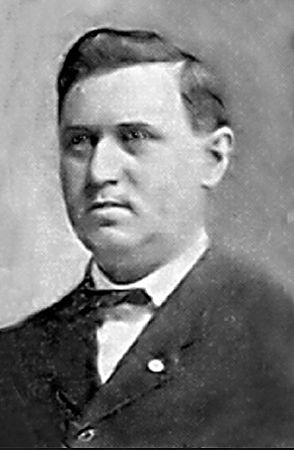
Henry Dietrich
(1872-1937)
Printer/City Assessor/Labor Activist
Dietrich was born at Belleville in 1872 and at the age of 13 he was on his own. His father was a coal miner from Germany. Henry's working career began with a printing apprenticeship to Hans Schwarz, Editor of the Arbeiter-Zeitung. Schwarz, a spirited and vigorous editor of the German language newspaper was continually involved in the controversial labor issues of the time and active in the Illinois Association of German-American Press. Dietrich, also a labor activist was elected President of West Belleville's Workingman Society and Typographical Union 18. He was elected City Assessor in 1902, a position he held until 1920.
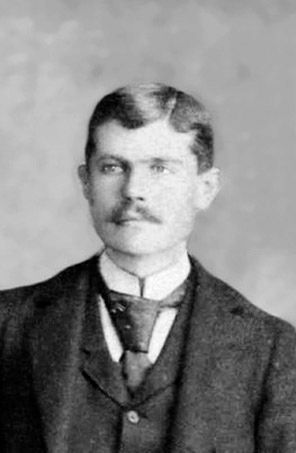
John Totsch Jr.
(1873-1943)
Glasshouse Worker/Laborer/
Union Organizer
Union Organizer
John Totsch, a laborer in various capacities for 40 years felt very lucky when he found employment at Belleville's Glass Works in 1891 as a glass gatherer. Five years later, he achieved the prideful distinction of "Glassblower". In 1903 he was elected Vice President of Glassworkers Union 9509. Trouble loomed. Adolphus Busch was building a "state of the art" bottleworks at St. Louis, MO. It was to be operating in time for the St. Louis World Fair in1904. Glassblowers could not conceive of a machine that would replace mouth blown fruit jars and beer and soda bottles. The bottle works was built and Busch closed his plants at Belleville and Streater, IL in 1910. Many glass house workers went to plants in Indiana for employment but Totsh remained in Belleville. He worked as a porter, a stoker -- whatever he could find. He found a nitch as a union organizer and was instrumental in the formation of Federal Labor Union #7087, a union that covered all outside laborers. He was elected President in 1912 and again in 1915. Note: Building and common laborers were members of the already established Labor Local 459 which is in existence to this day.
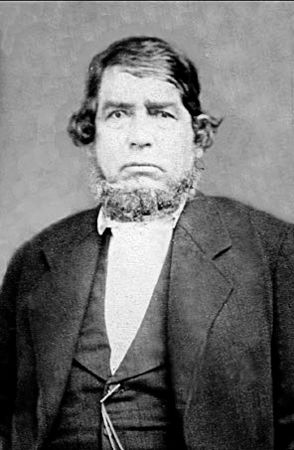
Samuel Goalby
(1827-1878)
Coal Miner/Hauler
Samuel and Sarah Goalby and their daughter, Sarah Ann, from England settled at Ogle Station. They were a coal mining family who entered the coal hauling business. Their second daughter, Adalaide, was born at Belleville in 1857 and Clara in 1960. The Goalby brothers, Albert and Samuel, carried on the business after their parents died in 1878. They also purchased as much land as possible. The Illinois & St. Louis Railroad Co. ran between Belleville (TN1NR8W) and New Pittsburgh along the Ogle, Goalby and Gartside coal lands (TN1NR9W). By 1874, there were 90 coal mines in St. Clair County delivering three million tons annually. (See 1874 Atlas of St. Clair County, p 9)
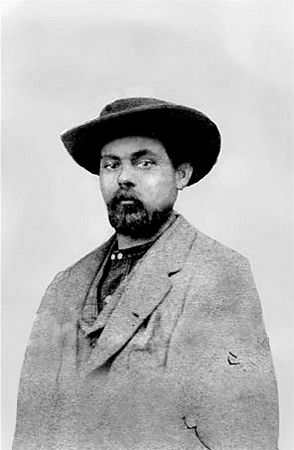
Simion Bunn
(1845-1913)
Bricklayer/Furnace Builder/
Musician
Musician
Simion Bunn, a foundryman from Pennsylvania, was a bricklayer in his youth. He became a furnace builder for Belleville Steel Co. which operated two mills in the city -- Valley Mill and West Mill. In 1871 Bunn patented a Puddling Furnace and in 1886 a "double decker" Nail Plate Furnace. His sons followed him in the stove and foundry industries of Belleville. Simion enjoyed and worked at a long career. At the age of 65 he was still installing furnaces. In 1910, Simion Bunn Sr., installed an annealing and smelting furnace for the Allegheny Valley Malleable Iron Co. of Missouri. In his spare time he led a brass band, playing the trumpet and bugle. He died October 11, 1913.
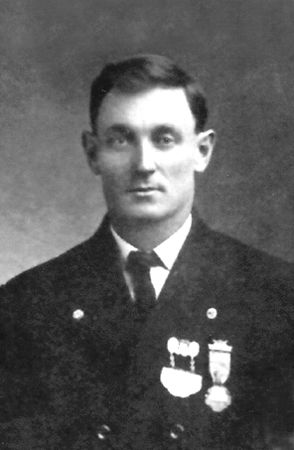
Walter S. Nesbit
(1878-1938)
UMWA/US Congressman
The Nesbit brothers, Walter and Charles, followed the coal mining heritage of their Father, Charles, a pioneer union organizer and charter member of the Illinois Association of Mine Workers. Beginning in 1883 he served as President of Belleville Sub District 4. His sons "cut their teeth" in benevolent organizations. As young coal miners, Charles joined the Coal Miners Protective Association and Walter joined the German Beneficial Union. Locally, Walter served as a Fifth Ward Alderman and the Treasurer of the Blleville Trades & Labor Assembly 1910-1911. His state and national offices, however, made a difference for the soft coal miners of Illinois. Walter Nesbit served the UMWA as a traveling auditor and as Secretary/Treasurer of the Illinois State UMWA for 18 years. In 1930 he was elected President of the Illinois UMWA and in 1932 a US Congressman. Walter S. Nesbit continually appealed to local, state and national leaders to address the needs of Illinois miners. His concerns were safety, health and wages. In 1933 news reporter, Walter Winchell, lauded Nesbit as a "hero of the common man" and presented him with a bouquet of orchids. Nesbit died in 1938, age 60.
